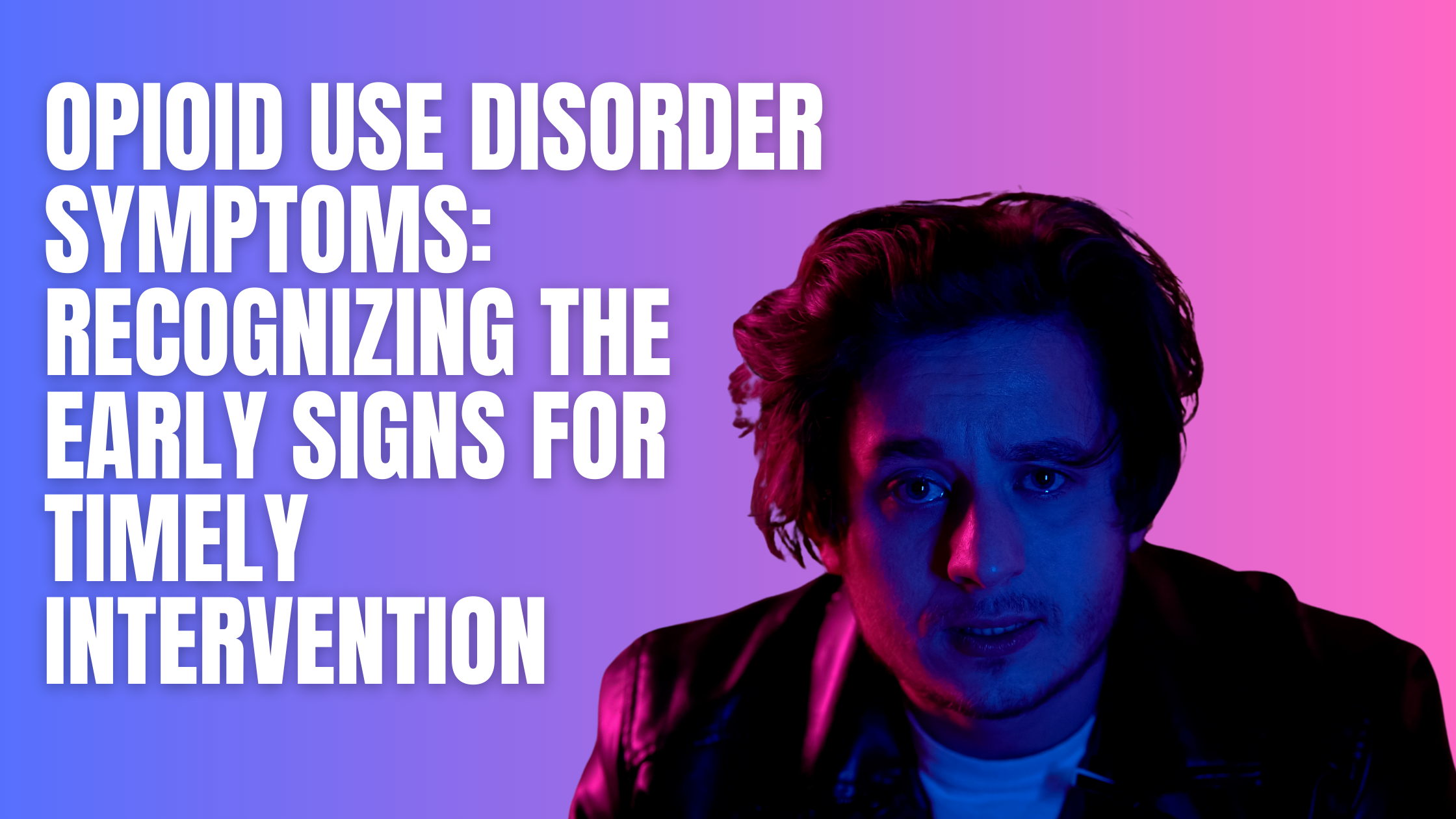Opioid Use Disorder Symptoms: Recognizing the Early Signs for Timely Intervention
Opioid use disorder symptoms encompass a range of behavioral, physical, and psychological changes, marking the urgent need for awareness and timely support. Recognizing these signs can be the first step toward seeking professional diagnosis and treatment.
In the heart of contemporary health discussions, Opioid Use Disorder (OUD) stands out for its profound impact on individuals and families across the globe. As the United States grapples with an ongoing opioid crisis, understanding the symptoms of OUD becomes crucial for early intervention and prevention. This blog post, brought to you by Health Search Hub, aims to shed light on the symptoms associated with OUD, offering hope for those seeking support and guidance in navigating this challenging health condition.
What is Opioid Use Disorder (OUD)?
Opioid Use Disorder is a complex health condition characterized by a problematic pattern of opioid use leading to significant impairment or distress. It signifies a transition from the mere use of prescription opioids for pain relief to a state of opioid abuse and dependence. This transition marks a critical juncture where the user’s engagement with opioids shifts from therapeutic to compulsive, underscoring the importance of distinguishing between controlled use and misuse.
Behavioral Symptoms of Opioid Use Disorder
Individuals grappling with OUD often exhibit noticeable behavioral changes. These include an increased consumption of opioids beyond what is medically prescribed and engaging in deceitful behaviors to obtain more of the substance. A hallmark of OUD is the prioritization of drug use over personal responsibilities, leading to noticeable neglect of work, educational, or familial duties. Such patterns not only disrupt personal life but also signal the deepening grip of addiction.
Physical Symptoms of Opioid Use Disorder
OUD manifests through a variety of physical symptoms, particularly noticeable during attempts to quit or reduce usage. Withdrawal symptoms may include anxiety, muscle aches, insomnia, and severe cravings, painting a vivid picture of the body’s dependence on opioids. Additionally, chronic use leads to increased tolerance, necessitating higher doses to achieve the same effects, further entrenching the cycle of addiction.
Cognitive and Psychological Symptoms
The effects of opioids extend beyond the physical, deeply affecting cognitive functions and mental health. Individuals may suffer from impaired memory, attention, and decision-making skills. The psychological toll is equally daunting, with many experiencing depression, dysphoria, and significant mood swings. These cognitive and psychological symptoms underscore the pervasive impact of OUD on an individual’s overall well-being.
Diagnostic Criteria for Opioid Use Disorder
The DSM-5-TR provides a framework for diagnosing OUD, requiring the presence of a specific pattern of opioid use leading to distress or impairment. Meeting two or more of the outlined criteria within 12 months signals a need for professional intervention, highlighting the importance of healthcare providers in identifying and addressing OUD.
Recognizing the Signs of Opioid Overdose
An opioid overdose represents a critical emergency, with symptoms such as slowed breathing, unresponsiveness, and blue-tinted skin. Immediate medical attention is crucial, as delays can lead to fatal outcomes. Awareness of these signs is paramount in preventing overdose deaths and underscores the acute dangers associated with opioid misuse.
Finding Support and Treatment
Hope and help are within reach for those battling OUD. A range of support options and treatment programs are available, including medication-assisted treatment (MAT), counseling, and behavioral therapy, all aimed at managing withdrawal symptoms, reducing cravings, and fostering recovery. Engaging with support organizations can also provide invaluable resources and community support.
The Opioid Crisis: A Broader Perspective
The opioid crisis has left indelible marks on society, driving home the urgency of addressing OUD. Beyond individual struggles, the situation has strained healthcare resources, escalated homelessness, and underscored the need for comprehensive strategies to combat this epidemic.
Wrapping Up
Grasping the breadth and depth of Opioid Use Disorder’s impact is essential for navigating the path to healing and recovery. With the guidance of Health Search Hub, those touched by OUD have access to a beacon of hope and a repository of knowledge designed to illuminate the way forward. Recognizing symptoms is just the beginning; reaching out for help is a step toward reclaiming control and embarking on a journey toward wellness.
A Final Note
Sharing insights and experiences can significantly amplify the message of hope and support for individuals wrestling with the shadows of OUD. By extending this conversation beyond our pages, we can foster a community of understanding, support, and recovery. If this resonates with you or someone close to you, engaging in dialogue and exploring avenues for assistance is a powerful stride toward transformation and healing.

